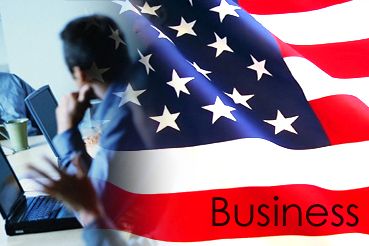Published on the 21/05/2008 | Written by Paul Trotter

Since he founded Author-it, info entrepreneur Paul Trotter’s unique content management solution has been implemented by over 3000 companies across 50 countries…
Perhaps most significantly, Author-it has also become a major player in the US market. In this wide-ranging interview Trotter busts the ‘too hard’ myth of doing business in America, and offers David McNickel plenty of no-nonsense ‘how to’ tips – applicable to any business wanting to get its foot in the door of the US market. Tip No# 1: Don’t be intimidated, you’re better than you think That’s not the case. We went over and ended up having the best exhibition booth of anyone there. It was a very targeted show and everyone else looked worse than we did. Hand written notices up on the wall and so on. If you compare yourself to the Microsofts and the Oracles which are the type of big players we see here, then yes you are going to look a bit small. But that was the first lesson – we actually can stand up on the world stage and compete effectively without being embarrassed about our roots. Tip No# 2: Think small occasionally, but well targeted To contrast that with big events, our President Steve Davis just went to CeBIT recently which is the biggest IT trade show in the world. Thousands, if not hundreds of thousands of attendees and he came back with 30 leads. The problem with those big events is that everyone is so unqualified [un-vetted] and you hardly see anyone that’s interested in your product. So we’ve found the best bang for your buck is to target small educational type conferences that will typically have associated exhibitions, small booths – and a focused audience. Tip No# 3: Don’t spend big on offices You have a permanent facility and you can grow as quickly as you want. Or you could spend half a million dollars setting up an office which serves the same purpose. Think about your business model. Using a centralised office is an one example of an office model. However, consider the cost of travel. If you have clients all around the country you may chose to have people all around the country as well and just fly them around. It’s so cheap in the US – $100 for an airfare. Tip No# 4: Do the easy stuff yourself, but be prepared to pay for good advice Now, then you have to go to a local accountant, definitely, and perhaps local lawyers for some things, but there’s no point in paying an expensive US law firm to set up a company when all they’re going to do is use the same website. Then when you do decide to pay for advice, don’t go cheap. I think neglecting to take good legal & accounting advice with some of the ventures I’ve gone into has been a mistake. A lot of companies get caught in that trap initially. ‘Oh, I’m not going to pay $400 an hour for a lawyer’. So they get a $200 or $100 an hour lawyer and get second rate advice. If I’d invested in that $400 an hour lawyer five years ago and got things done properly I wouldn’t have ended up in some of the holes that I’ve ended up in legally. These people are smart and they get $600 an hour for a reason. I could certainly have avoided some difficult entanglements simply by investing in the correct advice upfront. Tip No# 5: You think our traffic is bad? Think carefully about where you base yourself When we are flying around the country we just jump on the local commuter flights. Lots of flights on the hour with airlines like Southwest or JetBlue – not international carriers. Because it’s a small airport it takes half an hour to get through all the security stuff & the rental car company is right there. Basically you walk straight in, get on your plane and you’re off. Whereas if you go to LAX you have to allow yourself two hours just to get through all the rubbish before you can actually get on a plane. Tip No# 6: Look the part – Americans trust ‘Big’ In the beginning people in the States thought we were a massive company, far in excess of the size we were at the time. So don’t talk about your revenues and don’t talk about your staff numbers, because although in Australian terms they might be very respectable, in America they deal in larger economies of scale. The image you portray is one of the most important things that Australian businesses can do to put themselves on an equal footing. The web is a great vehicle for that because you can put a website up that looks like you’re at the same level as Microsoft. If you want to go and get million dollar deals project that image. Become the company you are aspiring to be. Tip No# 7: Don’t let tax strategies drive your business strategy So you have to set up a US company, and nine times out of ten I meet people who have looked at this and I ask them ‘what State are you going to put your company in?’ and they say ‘Delaware’. Sure it has some tax advantages and some legal advantages. But there are a lot of practical disadvantages. If you are trading in a different state then you have to go through a whole bunch of rigmarole. So we set up our office in California, and that’s where we incorporated our company. It makes things a lot simpler and there are a lot less issues to deal with. A lot of people have their whole business driven by tax instead of by common sense. Always deal with tax as a secondary concern. ABOUT PAUL TROTTER// Paul Trotter is the founder and CEO of Author-it software corporation. He is a popular speaker at events world-wide and an expert on the subjects of single sourcing, component content management, collaborative authoring and localisation. Author-it is a leading provider of software for component content management.
When we first went to the States to an exhibition the first thoughts I had were that we were going to look like a bunch of country bumpkins coming into the city for the first time. Like many people, my perception of the States was that it was all shiny lights and we are very backwards by comparison.
We go to a lot of events to generate leads and that’s our primary form of marketing specialised events. I just came away from an event that had only 500 people at it and we walked away with 100 leads.
Should you establish a lot of fancy offices? No, it’s a waste of time. There’s a crowd we use called Regus (www.regus.com). For $500 a month you have an office with reception, people to answer the phone & you can walk in there anytime.
Some basic mechanics of, how do I actually register my company? Do I go and find an expensive lawyer over there or do I just go to a website where I can do it for $300? We just did it on a website and for $300 we got this whole leather bound pack with a company name and seal and everything. That was California, but you can establish a company in any State you want.
We’re positioned right next to an airport. Set up your office next to a regional airport – not an international one. We’re in Orange County and we’re literally across the road from John Wayne Airport, but we’re about 40 minutes drive from LAX.
If you present yourself like you’re a small company, then that’s what people think you are. So we’ve always invested a lot in marketing image. Try and be the company you want to be, not necessarily the company you are.
We started out in the States with people employed as contractors, but you can only do that for so long before you create what’s called a ‘permanent establishment’ in the US according to the IRS – and then they’re going to tax you anyway.



























